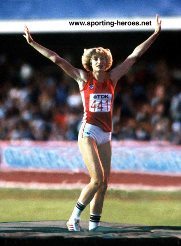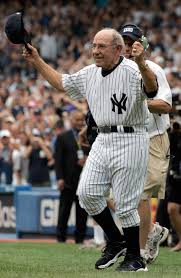|
Monday Oct. 19: I’ll take part in a forum about Yogi Berra at, where else, the Yogi Berra Museum and Learning Center at Montclair State University in New Jersey, 7 PM. Other panelists: two esteemed colleagues from the Times: Pulitzer-Prize winning Dave Anderson plus Harvey Araton, a/k/a the Rebbe of Roundball and chronicler of Yogi. Admission: $10. For information:
http://yogiberramuseum.org/join-us/upcoming-exhibits/ Friday, Oct. 23: I will be part of a panel “Selling Sport in the Cold War,” free to the public, 4:30 PM to 7 PM, at New York University’s Casa Italiana, 24 W. 12th St., New York, NY 10011. Panel members include: Amy Bass of The College of New Rochelle, Jeremy Schaap of ESPN and David McDonald of the University of Wisconsin. This is part of a two-day conference, The Global History of Sport in the Cold War, at NYU, Friday and Saturday. (Other events limited in space.) I was privileged to cover the Goodwill Games in Moscow in 1986 and Seattle in 1990 and often wrote about sport in the old Soviet bloc.) For information: http://www.nyu.edu/about/news-publications/news/2015/09/24/the-global-history-of-sport-in-the-cold-war-to-feature-george-vecsey-jeremy-schaap-and-othersoct-23-24-.html 11/20/2015 07:24:41 am
What a pity I've missed this events. I got knew about them too late to come. Will there be some more events like these? Comments are closed.
|
Categories
All
|











